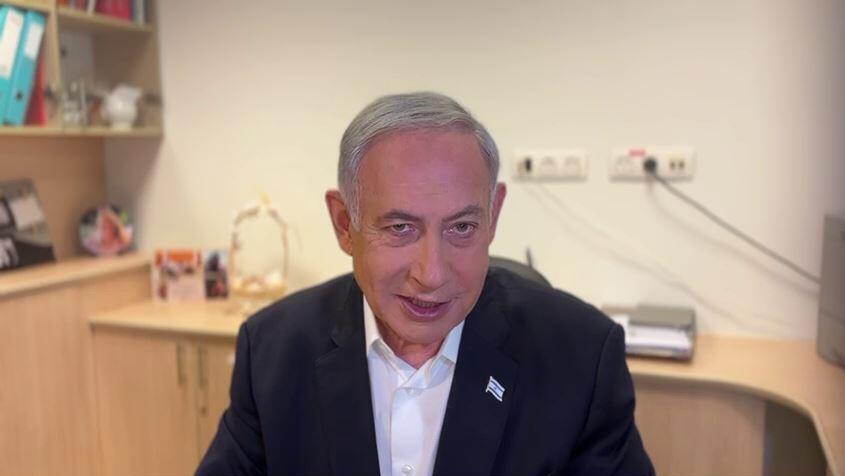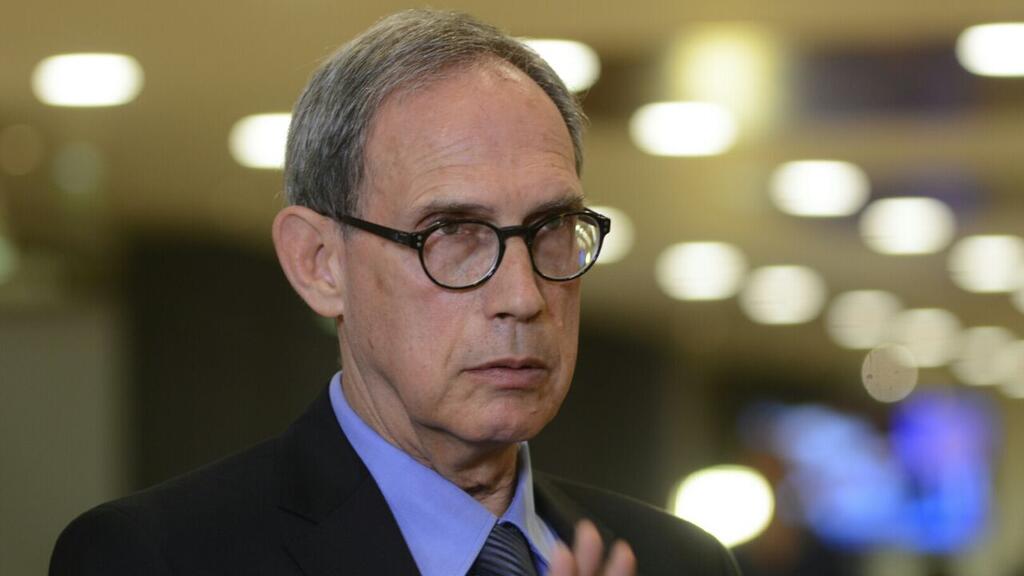Getting your Trinity Audio player ready...
At one of the protest rallies that took place last Saturday, hours after Prime Minister Benjamin Netanyahu's first hospitalization , I met a friend who told me he had a pacemaker installed. How, I asked, he just has sunstroke. Listen to me, she answered, pacemaker.
More stories:
At that moment we didn't really know what happened, but in retrospect she was right. This is Israel, and the world, in the year 2023. There can be no games, no hiding. Information is flowing, open and visible. But not everyone realizes this and they still miss the era of secrecy and concealment.
Let's start with an indisputable statement: Netanyahu is not a private citizen and therefore the right to privacy is not reserved for him in a manner similar to that of an ordinary person. Whoever has served as the leader of a country for 16 years must be completely transparent in every aspect of his public and "like private" life (regarding the "private" there is currently a trial going on in Jerusalem, where it will be decided what "personal friendship" means in the case of a prime minister. But let's face it, that's another matter). Beyond that, Netanyahu's medical incident and the conduct surrounding it are a microcosm of the state of Israel today. Link after link - the beginning, the continuation, the quasi-end.
1. First, the secrecy and concealment. Prime ministers refuse to understand the necessity of public disclosure of their personal affairs, including medical ones. The public has a right to know, a reserved and precious right. Once upon a time, it was possible to manage the published information. Who knew anything about David Ben-Gurion's medical condition? Levi Eshkol's death was a surprise to us. He probably had a heart attack, but we didn't know. Golda had cancer and it was only talked about in private. Menachem Begin's condition is still shrouded in ambiguity. With Ariel Sharon, the taboo was broken and the attempts at concealment were pathetic. After several attempts to downplay the seriousness of his condition, his office and Hadassah hospital began an orderly and regular presentation of updates. But it was already too late; the public trust is broken.
2. After the concealment came the race of the Netanyahu entourage to Tel Hashomer Medical Center, which was a perfect parable about medicine in the periphery and social equality in Israel. When a prime minister chooses to cross a quarter of a country to get to a hospital in the center, it means everything. It was not for nothing that the CEOs of the hospitals in Hadera and Kfar Saba protested. Although they did so quietly, so God forbid no one would be angry with them and call them to account.
3. And since then, the chain of stuttering, the partial information, the public videos. These are unsuccessful tricks. The public doesn't buy it. By the time the Prime Minister's Office came to its senses and the hospital sent the head of its cardiology unit, Professor Amit Segev, in front of the cameras, the networks were already on fire. It was impossible to stop the dance of rumors. So, the original version about the dehydration collapsed. He was fitted with a Holter monitor. It's nothing, they explained to us, just taking measurements. But the decision was an essential stop on the way to a decision to implant a pacemaker. Apparently not a disaster. After all, such measuring devices are installed for many, but not for the leaders of countries.
During the last week, Professor Segev checked on him. Instead of informing the public, the prime minister's people remained silent, until the doctor himself published a statement where he talked about how during the exam he used the opportunity to tell Netanyahu that he is against the judicial reform.
4. And then, another omission: The prime minister does not have a permanent deputy. In the most threatened country in the world there is no one who can immediately step into the prime minister's shoes if there is an emergency. But it's only for a short time, the prime minister's people said of the insertion of the pacemaker. We're not buying it. Anything can happen in seconds. And in the end a deputy was appointed for the nighttime procedure.
And of course, everything is happening in the midst of a public storm the likes of which the country has never known. We are being told that Netanyahu is functioning normally. But he cannot function normally. Lay people also understand this. The pressures are enormous, from internal and external politics, from home, from small and large crises gathering at his desk. A "normal" patient would have long ago been advised to rest at home. Does such a recommendation exist? This is exactly the point: Who knows? And if there is, will they tell us? Let's remember and internalize: This is his heart, but this is our life. And of course, get well soon Bibi.
Dr. Nachman Shai was Israel's Minister of Diaspora Affairs and previously served as a member of the Knesset as well as the IDF spokesman.



